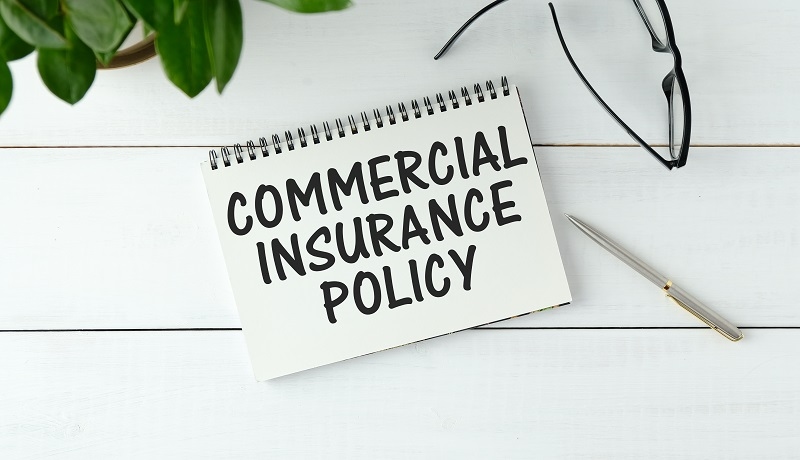
Going out on your own as a freelancer or starting a business can be an exciting and rewarding experience, but it has benefits and risks. Whether launching a tech company, starting a design business, or freelancing as a writer, having the appropriate insurance can be a lifesaver if things go downhill financially. This article will provide information about commercial insurance for startups and freelancers to help you protect your work and continue moving forward.
When starting something new, it is easy to think only about branding, sales, and how to make your product great, but one mistake or oversight is forgetting about insurance. Skipping insurance is a pitfall that can trap you. Life can throw things at you, like lawsuits or delicate things that can sink your business and finances.
For new businesses, it only takes one claim or incident to alter your financial support or even put you out of business. For freelancers, an unhappy client or a data problem could wipe out your savings. This is why freelancers and new businesses need to have insurance — it is not just a nice-to-have, it is a part of smart planning.
Business insurance is a set of policies that help businesses and freelancers if they lose money. Depending on what you do, your policy might guard you from lawsuits, damage to your stuff, online problems, and more.
Regarding insurance for solopreneurs and small startups, policies can be changed to only include what you need. This keeps costs down and helps you chill out!
Here are some kinds of insurance for startups and freelancers:
This is the most basic kind of safety net. It covers injuries, property damage, and legal costs if someone sues you for not being careful. Even if it's not your fault, court costs can be a lot.
Example: A client trips in your shared office space. If you're responsible for their bills and legal fees, this insurance takes care of them.
Also called Error and Omission insurance, this is key for service providers. It covers claims from mistakes, late work, or not-so-good work.
Example: A freelance graphic designer makes a logo that the client says is bad for their brand. If the client sues, your E\&O insurance pays for legal costs and what you owe the client.
This package deal includes general liability and property insurance. It is good for small businesses, and a BOP can be cheaper than getting policies one by one.
Tip: If you're renting an office or using equipment, think about a BOP for more protection.
Since most businesses are online, protection should include online security. Cyber insurance covers hacks, data leaks, and online risks.
Example: A freelance web builder is hacked, and client data is stolen. Cyber insurance pays to fix the problem and notify clients.
If you want to hire people, most states allow you to get this insurance. It covers bills and lost pay if someone is hurt while working.
If you drive your car for work, such as going to meetings or delivering things, your everyday car insurance may not be enough if you crash. That's where business car insurance can help.
Even if you're self-employed, don't think you can skip insurance. Freelance insurance is still a must. As your own boss, you're responsible for everything, so you're the one who would be at risk.
Here's what to consider:
Even if you work from home, don’t think your homeowner's policy covers business losses. Most times, it won’t.
Starting a business? Here's how to choose the right insurance:

Let’s see some real-world examples to understand better:
A small PR company didn't get the media results they promised. The customer sued them for not keeping their word, leading to $20,000 in legal costs. Their professional liability insurance took care of it all.
A freelance photographer's camera was stolen from her car. Because she had business property insurance covering the self-employed, she got paid back and didn't have to miss any jobs.
A freelance marketing consultant's emails were hacked, and client information was exposed. Her cyber liability insurance paid for notifying clients, fixing the data, and hiring a reputation management company.
Many freelancers wrongly assume they don't need business insurance for personal projects. However, a lot of platforms and clients now want proof of freelance liability insurance before they sign a contract. If you want higher-paying clients, insurance gives you an advantage.
Keep in mind that lawsuits aren't always about big mistakes. Even small disagreements can turn into legal problems. If you have the right policy, you won't have to pay for lawyers or settlements yourself.
These days, more and more people are doing side hustles and contract work. If you're one of them, self-employed protection is a must. Whether you're driving, designing, coding, or consulting, you're running a business that needs protection.
Websites like Upwork and Fiverr have also started suggesting or needing insurance in some areas. Getting insurance early can help your career in the long run.
Here's how to find the right insurance:
Here’s how you can save your money on insurance:
Many startups and freelancers are already nervous about money, but going without insurance could cost you far more than the annual insurance payment.
Getting insurance for startups and freelancers is a smart move to protect your business. Whether you are a one-person show or a soon-to-be Fortune 500 company, you encounter risk as part of your daily operations. Having the right kind of insurance gives you the peace of mind to scale your business, innovate ideas, and provide for your customers.
Having business insurance is not a sign of being fearful; it is a sign of being professional. Be it startup or freelance liability insurance, business insurance is there to help you and ensure your dream never becomes a nightmare.
This content was created by AI